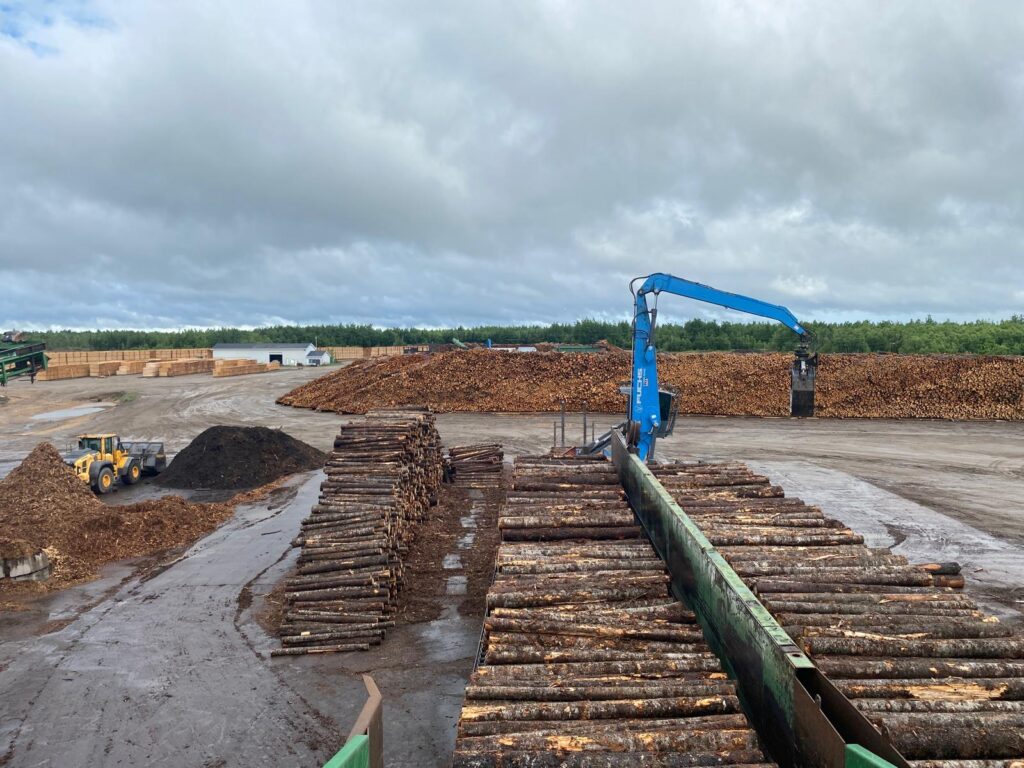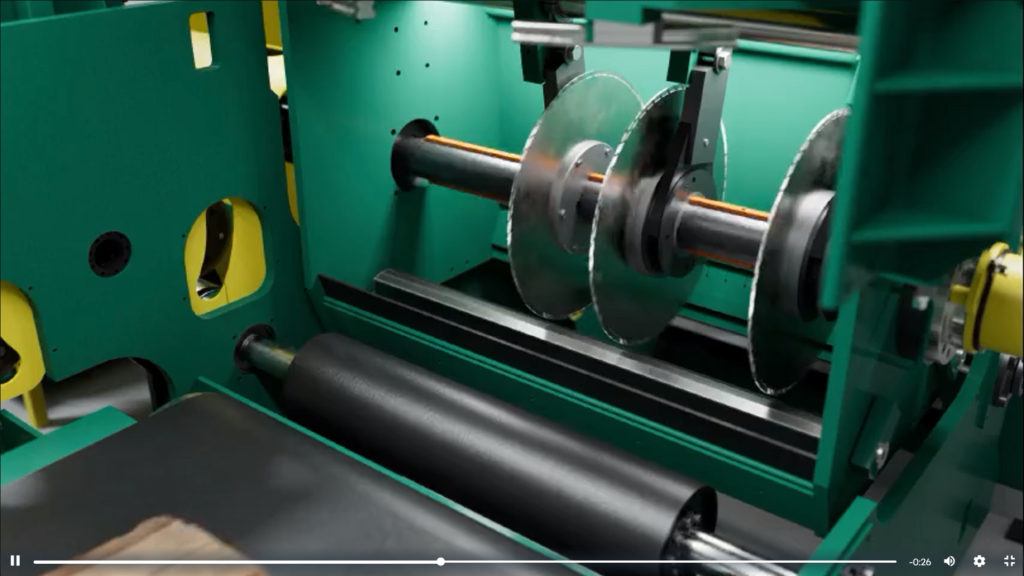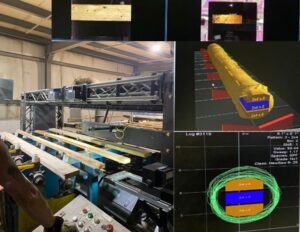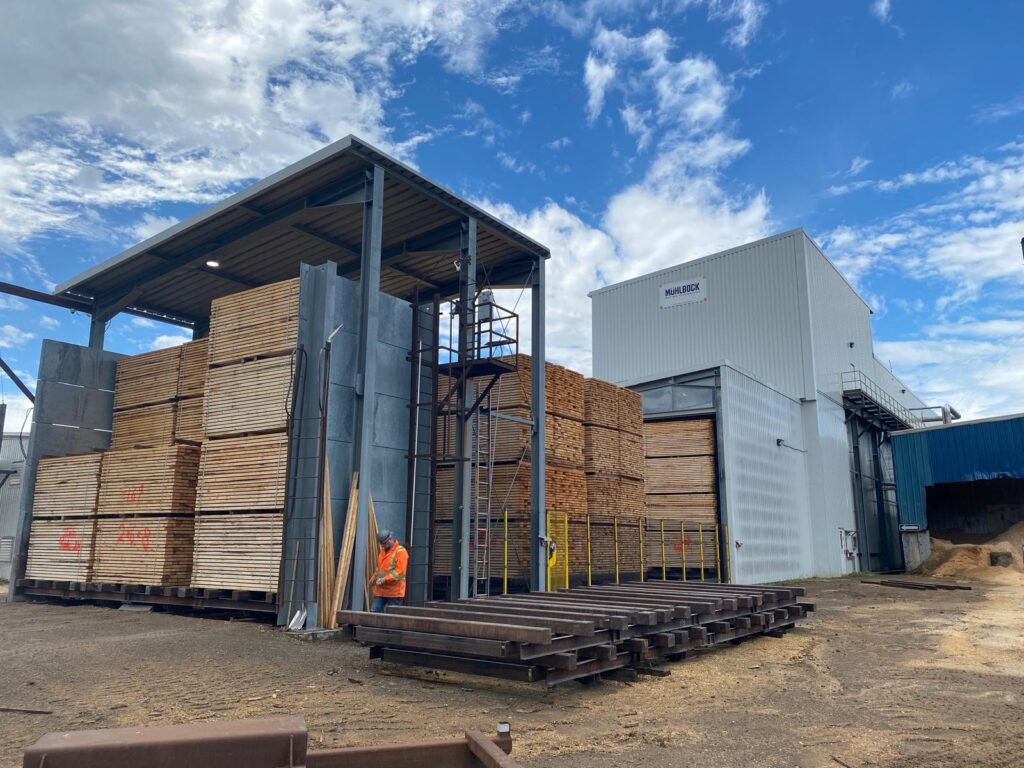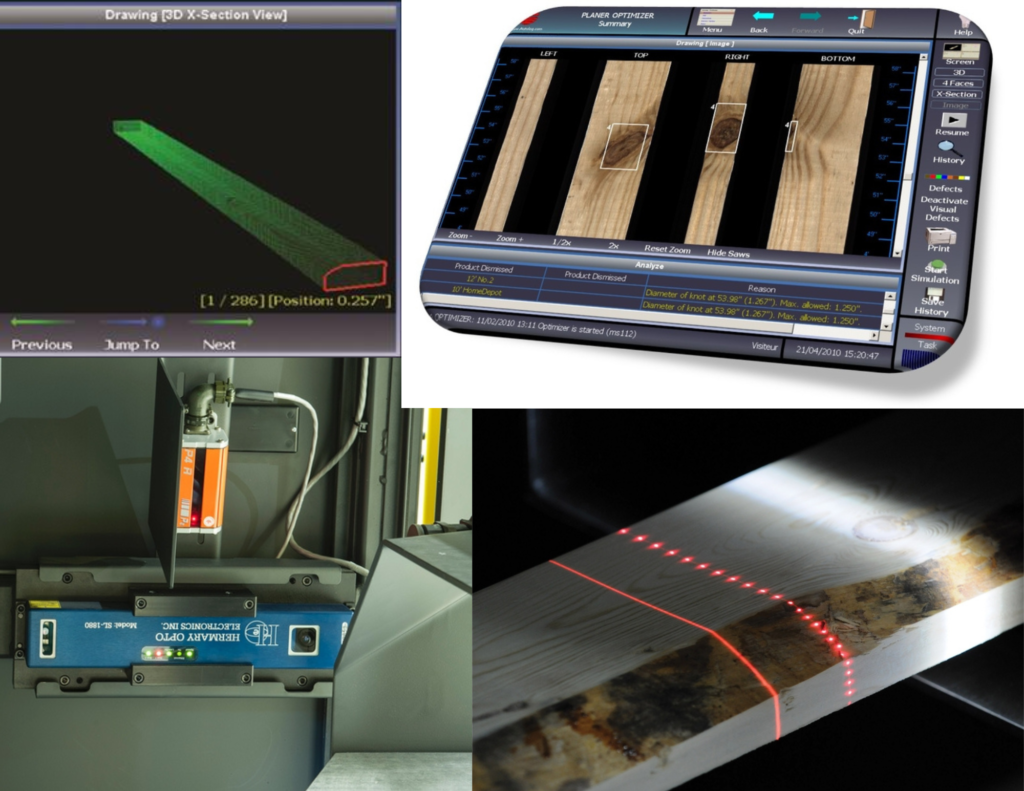This is the second article featuring a local sawmill and their path to deliver a quality and more sustainable product in Atlantic Canada.
The company
This time we visited Delco Forestry Products located in West Branch, NB. Founded by Delphis Cormier in 1984 Delco started as a small lathe mill with 16 employees. The company recently incorporated another sawmill and together with their own trucking division Delco employees over 180 people and is proud to be deeply involved with their community.
Delco manufactures various sizes and lengths of studs out of Maritime SPF lumber, including 2×3, 2×4, 2×6, etc. All of them kiln dried to approximately 14% humidity.
The process
Located in front of the saw line, the debarker uses a rotating ring to smoothly separate the bark from the log at the cambium layer without removing valuable fiber. These machines can debark a full log in just a few seconds.
Following this process a scanner measures and evaluates the logs to predict the cuts that will be made from this log, maximizing value and minimizing waste. The logs then go through the head rig, which consists of a series of large band saws that can follow the logs natural curve and create sections called cants.
The cants are scanned another time before being caried to the last of the saws, called the edger. In the edger a series of circular saws move and rotate in different directions determined by the computer dividing the cant in all the precise spots. The boards are then trimmed to specific lengths, usually to 2ft increments starting from 8ft.
At this point the boards are sorted and stacked according to their size and species. This process is also automated using yet another set of high-tech scanners.
The rough lumber stacks are moved to inside the kiln to dry until they reach a 19% humidity rate. The duration and the temperature change depending on multiple conditions including the season of the year and the wood species. The temperature range varies between 180 to 200 degrees Celsius.
Once graded the machine marks the product with an UV ink which allows it to be sorted according to it’s grade (No1, No2, Stud, etc) before finally being stamped, stacked, wrapped and shipped.
Positioned after the planer, an advanced piece of equipment automatically grades the now dressed lumber. Each type of sensors employed by this Autolog machine works to identify, measure and quantify certain wood defects that will define the grade at which each length of wood will be classified. The 2D vision sensors analyze 27,000 images per second to measure knots, rot, splits and shake, bark, etc. The 3D geometric sensors with precision of 0.003” measure dimensions, skip, wane, holes, and warp. Lastly, tracheid sensors measure the slope of the grain.
Once graded the machine marks the product with an UV ink which allows it to be sorted according to it’s grade (No1, No2, Stud, etc) before finally being stamped, stacked, wrapped and shipped.
Sustainability
With the goal of mitigating the environmental impact and increasing cost savings of they production process, Delco decided to upgrade their kiln in 2019 and became the first sawmill in North America to install a Mühlböck continuous dry kiln.
The progressive continuous kiln technology provides consistency of drying quality. Lowering the standard deviation in moisture content led to better results at the planer, shorter drying times and higher throughput, and better-quality lumber overall.
On top of that this new system operates with energy savings around 50%. This higher energy efficiency level is achieved through a modern heat recovery technology.


